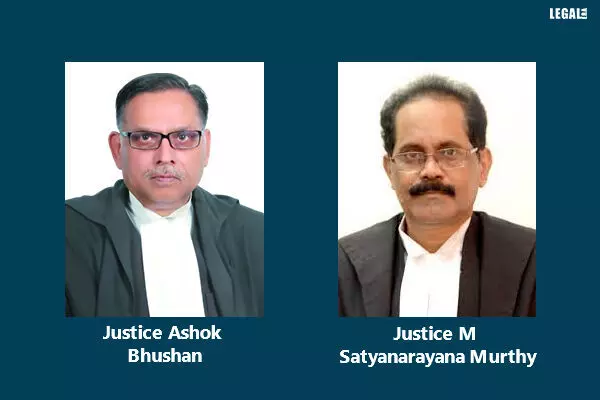- Home
- News
- Articles+
- Aerospace
- Artificial Intelligence
- Agriculture
- Alternate Dispute Resolution
- Arbitration & Mediation
- Banking and Finance
- Bankruptcy
- Book Review
- Bribery & Corruption
- Commercial Litigation
- Competition Law
- Conference Reports
- Consumer Products
- Contract
- Corporate Governance
- Corporate Law
- Covid-19
- Cryptocurrency
- Cybersecurity
- Data Protection
- Defence
- Digital Economy
- E-commerce
- Employment Law
- Energy and Natural Resources
- Entertainment and Sports Law
- Environmental Law
- Environmental, Social, and Governance
- Foreign Direct Investment
- Food and Beverage
- Gaming
- Health Care
- IBC Diaries
- In Focus
- Inclusion & Diversity
- Insurance Law
- Intellectual Property
- International Law
- IP & Tech Era
- Know the Law
- Labour Laws
- Law & Policy and Regulation
- Litigation
- Litigation Funding
- Manufacturing
- Mergers & Acquisitions
- NFTs
- Privacy
- Private Equity
- Project Finance
- Real Estate
- Risk and Compliance
- Student Corner
- Take On Board
- Tax
- Technology Media and Telecom
- Tributes
- Viewpoint
- Zoom In
- Law Firms
- In-House
- Rankings
- E-Magazine
- Legal Era TV
- Events
- Middle East
- Africa
- News
- Articles
- Aerospace
- Artificial Intelligence
- Agriculture
- Alternate Dispute Resolution
- Arbitration & Mediation
- Banking and Finance
- Bankruptcy
- Book Review
- Bribery & Corruption
- Commercial Litigation
- Competition Law
- Conference Reports
- Consumer Products
- Contract
- Corporate Governance
- Corporate Law
- Covid-19
- Cryptocurrency
- Cybersecurity
- Data Protection
- Defence
- Digital Economy
- E-commerce
- Employment Law
- Energy and Natural Resources
- Entertainment and Sports Law
- Environmental Law
- Environmental, Social, and Governance
- Foreign Direct Investment
- Food and Beverage
- Gaming
- Health Care
- IBC Diaries
- In Focus
- Inclusion & Diversity
- Insurance Law
- Intellectual Property
- International Law
- IP & Tech Era
- Know the Law
- Labour Laws
- Law & Policy and Regulation
- Litigation
- Litigation Funding
- Manufacturing
- Mergers & Acquisitions
- NFTs
- Privacy
- Private Equity
- Project Finance
- Real Estate
- Risk and Compliance
- Student Corner
- Take On Board
- Tax
- Technology Media and Telecom
- Tributes
- Viewpoint
- Zoom In
- Law Firms
- In-House
- Rankings
- E-Magazine
- Legal Era TV
- Events
- Middle East
- Africa
NCLAT rules on CIRP application date

NCLAT rules on CIRP application date
Taking note of the Supreme Court and High Court judgments, it dismissed the appellant's appeal
The Delhi Bench of the National Company Law Appellate Tribunal (NCLAT) has held that the date of filing of an application is the date when the application is placed before the Registry, and not the date when the Registry allocates a number to the application.
The bench of Justice Ashok Bhushan and Justice M Satyanarayana Murthy, and Technical Member Barun Mitra were ruling on the Dinesh Kumar Basia vs State Bank of India case.
The tribunal held, "When we read Rule 2 (14) along with Rule 23 of the National Company Law Appellate Tribunal Rules, it is clear that the application is treated to be filed when it is filed in the Office of the Registry at the filing counter. Thus, the filing on behalf of the appellant/applicant is complete as soon as the application is presented at the filing counter of the Office of the Registry."
The creditor, the State Bank of India (SBI) filed an application under the Insolvency and Bankruptcy Code (IBC) to start the insolvency process against the appellant, who was the guarantor of the corporate debtor. Later, the appellant also filed an application under IBC to initiate the insolvency process.
While SBI filed the application with the registry in October 2021, it was numbered by the registry in February 2022. Whereas the appellant's application was filed in October 2021 and was numbered in December 2021.
The appellant, therefore, claimed that its petition was earlier in point of time, and from which date the moratorium should kick in, prohibiting the consideration of the bank's application.
But NCLT ruled in favor of SBI, noting that it had filed the application in time, and also appointed a Resolution Professional. This order was then challenged before the NCLAT.
The question before the tribunal was whether the date of the application to be considered was when it was 'filed' or when the Registry 'numbered' it.
The appellate tribunal ruled, "If we accept the submission of the appellant that filing is postponed till it is numbered, it will lead to uncertainty and allow the guarantors and other respondents to delay the moratorium by pleading that filing is not complete, since the application has not yet been numbered. The numbering of an application is essential for different purposes and cannot be equated with the filing as contemplated by the Rules."
It further noted, "Several consequences ensue on the filing of the application in the Registry if it is accepted that the filing shall be dependent on the numbering of the application by the Registry. It will lead to uncertainty regarding the date of filing. When statutory consequences are provided, there has to be certain regarding such consequences. We cannot accept any interpretation, which may lead to uncertainty regarding the date of filing, resulting in uncertainty, regarding enforcement of the interim moratorium."
After going through a number of Supreme Court and High Court judgments, the bench dismissed the appeal. It came to the conclusion that the NCLT order did not warrant any interference.



